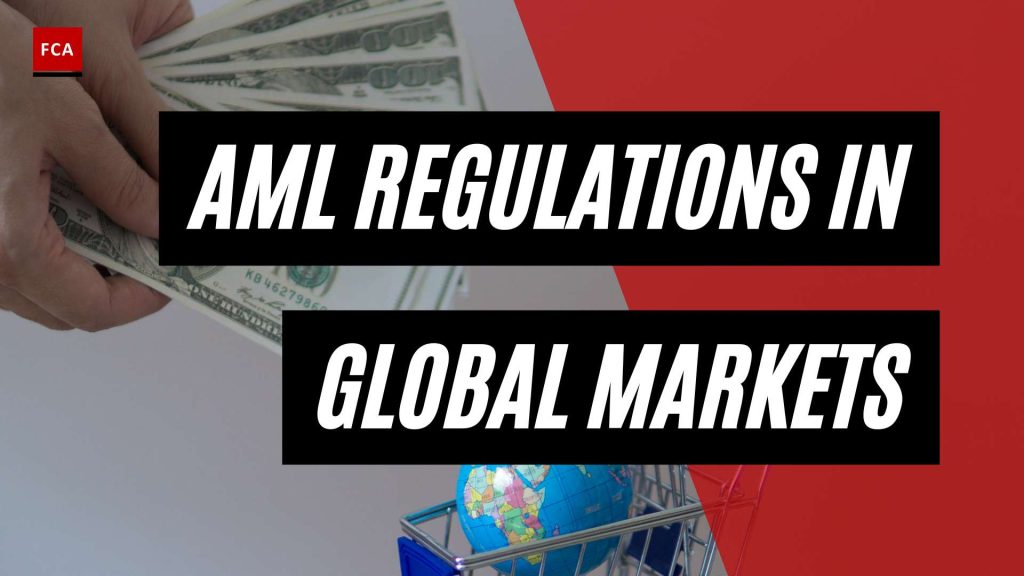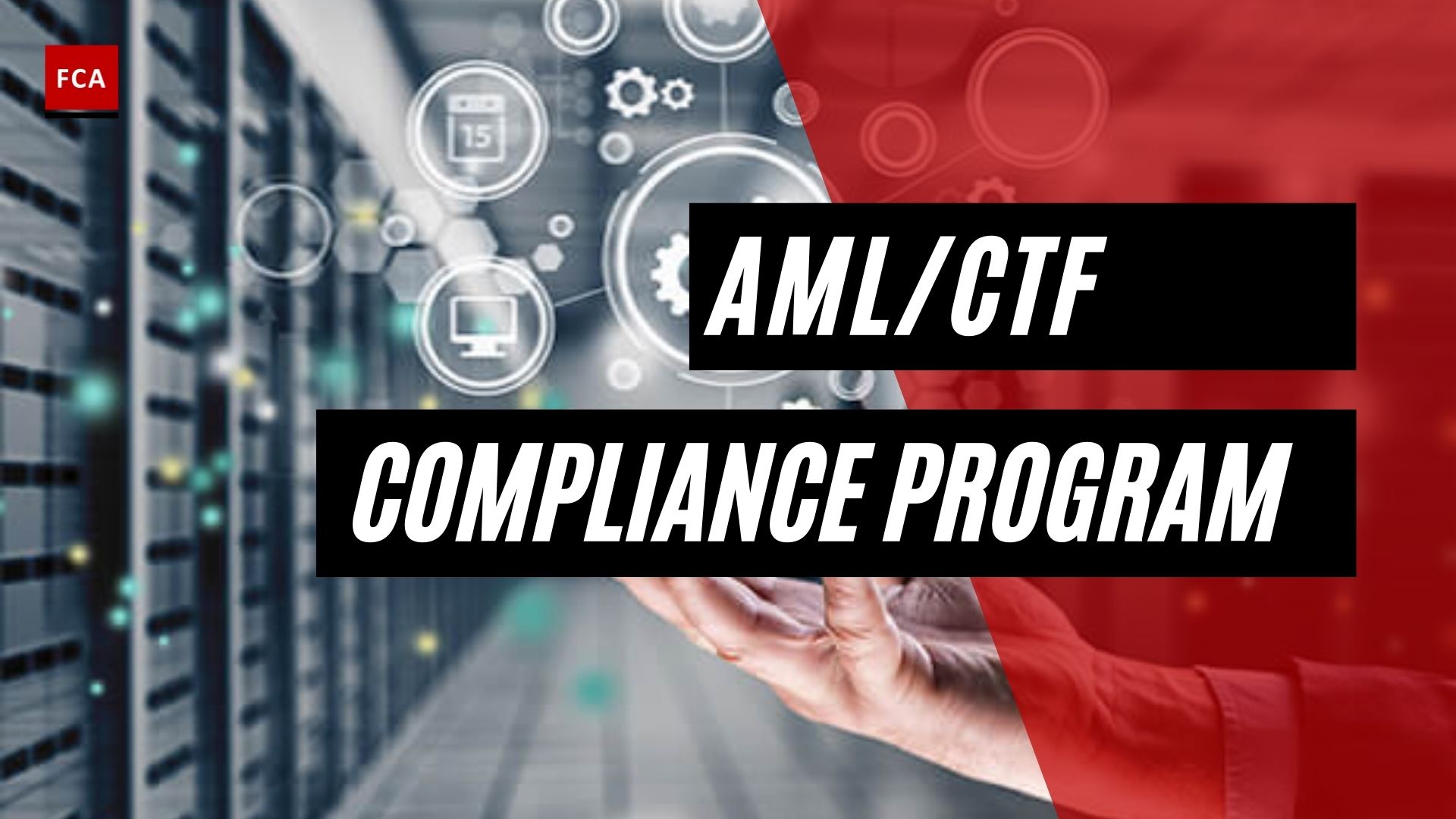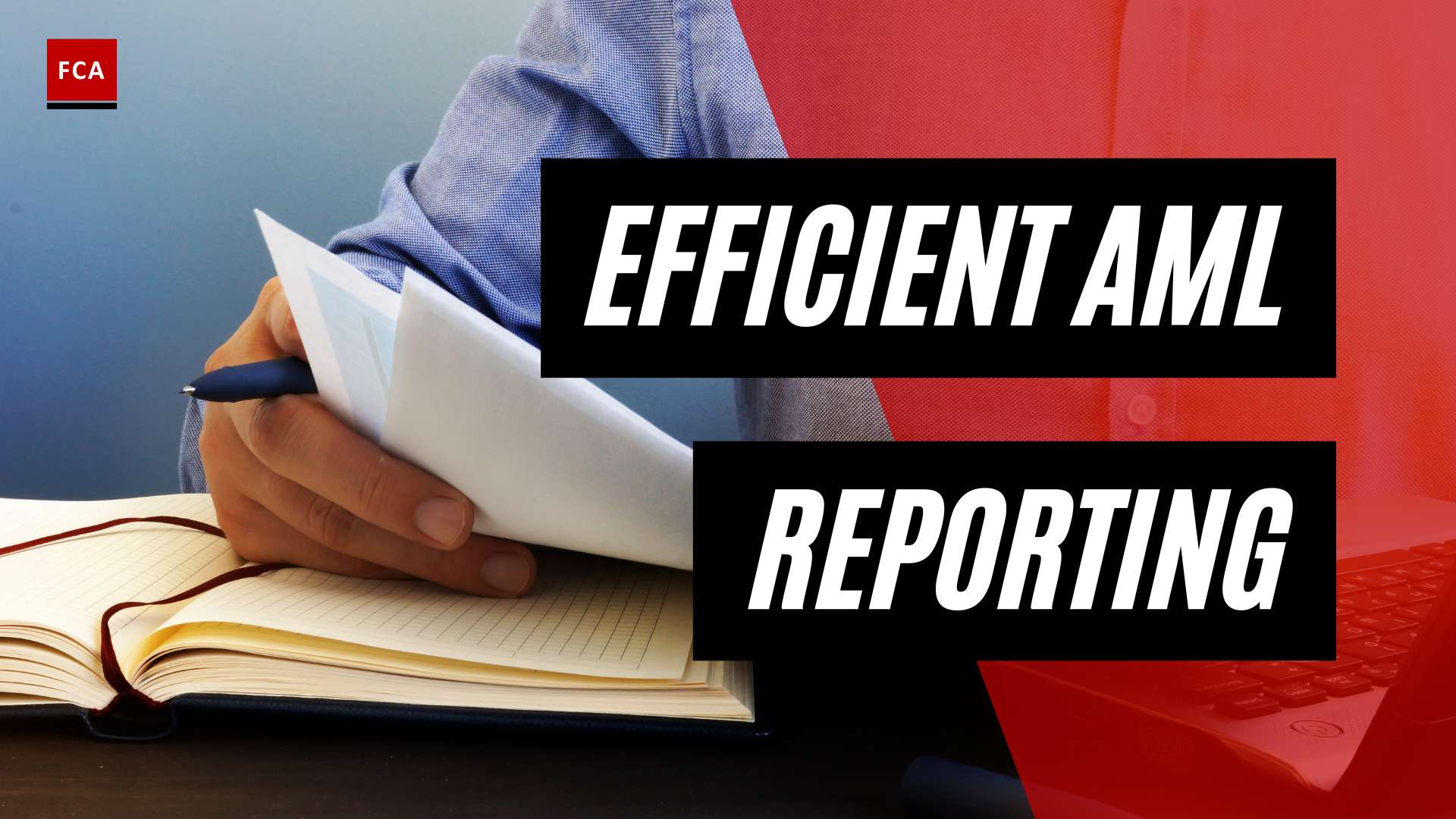The Importance of AML Regulations in Global Markets
In the dynamic landscape of global markets, strong Anti-Money Laundering (AML) regulations play a vital role in safeguarding the integrity and stability of financial systems. These regulations serve two primary purposes: preventing money laundering and financial crimes, and promoting transparency and accountability within the financial sector.
Preventing Money Laundering and Financial Crimes
AML regulations are designed to combat illicit activities such as money laundering, terrorism financing, and other financial frauds that can have severe consequences for economies and societal well-being. By implementing robust AML measures, financial institutions and businesses can deter criminals from exploiting the financial system for their illicit gains. A strong and effective AML policy can prevent the infusion of illicit funds into the economy, maintaining the integrity of financial systems worldwide (LexisNexis).
Promoting Transparency and Accountability
Transparency and accountability are crucial elements for maintaining trust in the financial sector. AML regulations promote these principles by establishing reporting requirements, customer due diligence measures, and transaction monitoring systems. By adhering to these regulations, financial institutions and businesses can demonstrate their commitment to ethical practices and create a trust environment among stakeholders, including customers, investors, and regulatory authorities. AML regulations also help uncover and expose potential financial crimes, contributing to the detection and prevention of illicit activities within the global financial system (LexisNexis).
To ensure effective compliance with AML regulations, businesses and financial institutions must stay updated with the evolving regulatory landscape and implement robust AML compliance programs. Collaborative efforts, information sharing, and the use of advanced technologies like AI and machine learning can further enhance AML compliance in global markets. By maintaining good AML practices, businesses can protect their reputation and mitigate the consequences of non-compliance, which can include significant penalties, legal ramifications, and damage to stakeholder trust.
The importance of AML regulations in global markets cannot be overstated. They serve as a crucial safeguard against money laundering and financial crimes, promoting transparency, integrity, and stability within the financial sector. By adhering to these regulations, businesses and financial institutions contribute to a safer and more secure global financial system for all stakeholders involved.
Emerging Trends in AML Regulations
As anti-money laundering (AML) regulations continue to evolve, several emerging trends are shaping the landscape of global markets. Understanding these trends is crucial for professionals working in compliance, risk management, anti-money laundering, and anti-financial crime. In this section, we will explore three key trends: increasing AML fines and enforcement actions, challenges of globalization and AML compliance, and the utilization of technology for AML compliance.
Increasing AML Fines and Enforcement Actions
In recent years, there has been a significant increase in AML fines and enforcement actions. According to LexisNexis, AML fines have increased by 50%. Regulatory authorities are cracking down on financial institutions and companies that fail to comply with AML regulations, resulting in substantial fines and penalties. Alleged breaches of AML regulations are leading to large fines against organizations, highlighting the importance of robust AML compliance measures (LexisNexis).
Challenges of Globalization and AML Compliance
The globalization of financial markets presents unique challenges for AML compliance. Varying AML regulations and compliance requirements across jurisdictions make it challenging for businesses with global operations to navigate the complex regulatory landscape. The lack of a global standard for AML regulations often leads to disparities between countries, making it difficult to establish consistent compliance frameworks (KYC Hub).
Furthermore, globalization has increased cross-border money laundering risks, as criminals exploit the complexities of international transactions and offshore financial centers. Financial institutions operating across borders face the challenge of effectively monitoring and identifying suspicious activities in cross-border transactions. They must develop robust AML programs that address the specific challenges posed by globalization (KYC Hub).
Utilizing Technology for AML Compliance
In an era of rapid technological advancements, the utilization of technology has become essential in enhancing AML compliance efforts. Technologies like artificial intelligence (AI) and machine learning are increasingly being employed to improve the efficiency, accuracy, and effectiveness of AML compliance processes in global markets (Tookitaki). These tools can help organizations detect patterns, anomalies, and suspicious activities more effectively, thereby enhancing their ability to identify and prevent money laundering activities.
Additionally, technology can assist in automating compliance processes, reducing manual efforts, and improving overall operational efficiency. Advanced analytics capabilities enable financial institutions to analyze vast amounts of data, identify potential risks, and make informed decisions to mitigate money laundering threats. However, it is important to note that technology should be complemented by human expertise to ensure the accuracy and relevance of AML compliance efforts.
In conclusion, emerging trends in AML regulations are shaping the global markets’ approach to combating money laundering and financial crimes. The increasing fines and enforcement actions emphasize the urgency for organizations to prioritize AML compliance. The challenges posed by globalization necessitate a comprehensive understanding of varying AML requirements and the development of tailored compliance programs. Leveraging technology can enhance AML compliance efforts by improving efficiency, accuracy, and effectiveness in detecting and preventing money laundering activities. By staying informed and embracing technological advancements, organizations can adapt to the evolving AML landscape and maintain the integrity of global financial systems.
Key AML Regulatory Bodies
To effectively combat money laundering and ensure compliance with anti-money laundering (AML) regulations in global markets, it is crucial to be familiar with key regulatory bodies that play a significant role in shaping and enforcing these regulations. The following are some of the prominent AML regulatory bodies:
Financial Action Task Force (FATF)
The Financial Action Task Force (FATF) is an international organization consisting of 37 member jurisdictions and two regional organizations. Its primary mission is to combat money laundering, terrorist financing, and the proliferation of weapons of mass destruction by establishing global standards for AML and counter-terrorist financing (CFT). The FATF provides guidance and recommendations to its member countries to develop and implement effective AML/CFT frameworks.
European Union Directives on AML
The European Union (EU) has been proactive in the fight against money laundering and terrorism financing. It has issued directives such as the Fifth Anti-Money Laundering Directive (5AMLD) and the Sixth Anti-Money Laundering Directive (6AMLD), which aim to strengthen AML regulations and enhance cooperation among EU member states in combating financial crime. These directives play a significant role in shaping AML regulations across Europe.
Financial Conduct Authority (FCA)
In the United Kingdom, the Financial Conduct Authority (FCA) is the regulatory body responsible for overseeing and regulating the financial industry. The FCA is committed to tackling money laundering and terrorist financing activities, ensuring the integrity of the UK’s financial system, and protecting consumers. It sets out requirements and guidance for financial institutions to prevent money laundering and terrorist financing.
Bank Secrecy Act (BSA)
In the United States, the Bank Secrecy Act (BSA) is a crucial piece of legislation for AML compliance. Enforced by the Financial Crimes Enforcement Network (FinCEN), the BSA focuses on combating money laundering and other financial crimes. It requires financial institutions to establish AML programs, report suspicious transactions, and maintain records of certain transactions. Non-compliance with the BSA can result in significant penalties, including fines of up to $250,000.
Financial Transactions and Reports Analysis Centre of Canada (FINTRAC)
In Canada, the Financial Transactions and Reports Analysis Centre of Canada (FINTRAC) plays a critical role in preventing money laundering, terrorist financing, and other risks to Canada’s security. FINTRAC is responsible for the collection, analysis, and disclosure of financial intelligence. It works closely with reporting entities, such as banks and other financial institutions, to ensure compliance with AML regulations and reporting obligations.
Understanding the roles and responsibilities of these key AML regulatory bodies is essential for organizations operating in global markets. Compliance with their guidelines and regulations is crucial to prevent money laundering, terrorist financing, and other financial crimes. It is imperative for businesses to stay updated with the latest requirements and guidance issued by these regulatory bodies to maintain effective AML compliance programs.
Challenges and Consequences of Non-Compliance
Ensuring compliance with Anti-Money Laundering (AML) regulations is of paramount importance for financial institutions operating in global markets. Non-compliance can have severe consequences, including reputational damage, financial penalties, and legal repercussions. In this section, we will explore some of the challenges faced by organizations in achieving AML compliance and the potential consequences of non-compliance.
Evolving Money Laundering Techniques
Criminals are constantly evolving new methods to launder money, making it challenging for financial institutions to detect and prevent money laundering activities. Techniques such as the use of shell companies, offshore accounts, and digital currencies, as well as complex transactions like layering and integration, pose significant challenges to AML compliance (Sanction Scanner). Financial institutions must stay vigilant and adapt their AML strategies to address these evolving threats.
Lack of Cooperation and Information Sharing
Effective cooperation and information sharing between financial institutions and regulatory authorities are crucial for combating money laundering. However, there are challenges in achieving optimal cooperation due to factors such as competition, data privacy concerns, and jurisdictional differences. Insufficient collaboration and information sharing hinder the ability to detect and prevent money laundering activities, making it easier for criminals to exploit vulnerabilities in the financial system (Sanction Scanner).
Governance Requirements and Compliance Burden
Globalization has led to an increase in governance requirements for financial institutions. Compliance with varying AML regulations across different jurisdictions can be complex and resource-intensive. Financial institutions must navigate through a maze of regulatory frameworks, gather extensive customer information, and ensure compliance with due diligence obligations. This burden of compliance can lead to time-consuming processes and resource strain on organizations (Sanction Scanner).
Shortage of Skilled AML Personnel
The shortage of skilled personnel in the field of AML poses a significant challenge for organizations. Finding qualified professionals with expertise in AML is a difficult task due to high demand and high turnover rates. Financial institutions need to invest in recruitment, retention, and training strategies to ensure they have a competent workforce capable of effectively implementing AML compliance measures (Sanction Scanner).
Complex Procedures and Technology Solutions
Achieving AML compliance requires organizations to implement complex procedures and deploy robust technology solutions. Data integration, system compatibility, and data quality are essential for centralized fraud and financial crime analysis. Financial institutions must invest in advanced technology solutions to enhance their ability to detect and prevent money laundering activities. However, implementing and managing these solutions can be a challenging and resource-intensive process (Sanction Scanner).
Addressing these challenges is crucial for financial institutions to maintain effective AML compliance programs. By staying updated on evolving money laundering techniques, fostering cooperation and information sharing, streamlining governance requirements, investing in skilled personnel, and leveraging advanced technology solutions, organizations can enhance their ability to detect and prevent money laundering activities, safeguarding the integrity of the global financial system.
Enhancing AML Compliance in Global Markets
To effectively combat money laundering and financial crimes on a global scale, it is essential for organizations to enhance their Anti-Money Laundering (AML) compliance efforts. Staying updated and compliant with evolving regulations and requirements is crucial in maintaining the integrity of global markets. In this section, we will explore the importance of staying updated and compliant, effective AML compliance programs, collaborative efforts and information sharing, and the role of AI and machine learning in AML compliance.
Importance of Staying Updated and Compliant
In today’s rapidly changing regulatory landscape, it is crucial for organizations to stay updated with AML regulations in global markets. Regulatory requirements can vary across jurisdictions, and failure to comply can result in severe consequences, including financial penalties and reputational damage. Regular training, risk assessments, and internal controls are fundamental components of effective AML compliance frameworks. By staying updated and compliant, organizations can mitigate the risks associated with money laundering and financial crimes, ensuring the integrity of their operations and safeguarding their reputation. For more information on the consequences of non-compliance, refer to our article on consequences of non-compliance.
Effective AML Compliance Programs
Developing and implementing effective AML compliance programs is critical for organizations operating in global markets. These programs should include robust policies and procedures tailored to the specific risks faced by the organization. Key components of an effective AML compliance program include customer due diligence, transaction monitoring, and reporting of suspicious activities. By implementing these measures, organizations can enhance their ability to detect and prevent money laundering and financial crimes. Regular audits and internal reviews can also help identify areas for improvement and ensure the ongoing effectiveness of the compliance program.
Collaborative Efforts and Information Sharing
Collaboration among financial institutions, regulators, and law enforcement agencies is vital in the fight against money laundering and financial crimes. Information sharing and cooperation enable the effective enforcement of AML regulations on a global scale. By exchanging information, financial institutions and authorities can identify patterns, trends, and emerging risks related to money laundering activities. Collaborative efforts can also help in the development of best practices, standards, and guidelines that enhance the overall effectiveness of AML compliance efforts. For more information on collaborative efforts, refer to our article on globalization and money laundering.
Role of AI and Machine Learning in AML Compliance
Technological advancements, such as AI and machine learning, are revolutionizing AML compliance processes in global markets. These technologies enable organizations to improve the efficiency, accuracy, and effectiveness of their AML compliance efforts. AI and machine learning algorithms can analyze vast amounts of data and identify patterns and anomalies associated with money laundering activities. By automating certain tasks and augmenting human decision-making, AI and machine learning can streamline compliance processes and enhance the detection and prevention of money laundering. For more information on the role of AI and machine learning in AML compliance, refer to our article on AI and machine learning in AML compliance.
By prioritizing staying updated and compliant, implementing effective compliance programs, fostering collaboration and information sharing, and leveraging AI and machine learning technologies, organizations can enhance their AML compliance efforts in global markets. These measures are essential in combating money laundering and financial crimes, maintaining the integrity of the financial system, and protecting the interests of all stakeholders involved.
The Impact of AML Compliance on Business Reputation and Trust
Maintaining a good reputation and establishing trust are vital for businesses operating in global markets. AML (Anti-Money Laundering) compliance plays a significant role in achieving these goals, ensuring that businesses operate ethically and transparently.
AML Compliance for Maintaining Good Reputation
Compliance with AML regulations is crucial for businesses to maintain a positive reputation in the global market. Implementing robust AML compliance measures demonstrates a commitment to ethical business practices and the prevention of financial crimes. By adhering to AML regulations, businesses can build trust with their customers, investors, and stakeholders, as well as enhance their overall reputation.
Non-compliance with AML regulations can have severe consequences, including reputational damage and loss of trust. Financial institutions and other businesses failing to meet AML requirements risk being associated with money laundering activities, leading to a tarnished reputation that can be difficult to recover from. Upholding AML compliance standards is vital to safeguard a company’s image and maintain the trust of customers and stakeholders.
Consequences of Non-Compliance
The consequences of non-compliance with AML regulations can be significant. Financial penalties are a common outcome, with fines ranging from thousands to millions of dollars, depending on the severity and scale of the violation. These monetary penalties can have a substantial impact on a company’s financial stability and profitability. For updated information about the consequences of non-compliance, you can refer to Financial Crime Academy.
In addition to financial penalties, non-compliant organizations may face legal proceedings and regulatory sanctions. Operating licenses can be revoked, preventing businesses from conducting operations in global markets. These consequences can lead to substantial financial losses and long-term damage to a company’s reputation. It’s essential for businesses to prioritize AML compliance to protect their reputation, maintain customer trust, and ensure sustainable operations.
To maintain a good reputation and trust in the global market, businesses must prioritize AML compliance. By implementing effective AML compliance programs, collaborating with regulatory bodies, and staying updated on evolving AML regulations, businesses can demonstrate their commitment to ethical practices and contribute to the integrity of the financial system.
Internal links:
- globalization and money laundering
- cross-border money laundering risks
- globalization and financial crime
- aml challenges in multinational corporations
- globalization and offshore financial centers
- aml challenges in emerging markets
- aml challenges in cross-border transactions
- aml compliance in international remittances
- impact of globalization on aml compliance
For more information about the impact of AML compliance on business reputation and trust, you can check out Tookitaki and KYC Hub.
The Role of International Organizations in AML Compliance
International organizations play a crucial role in shaping and promoting effective Anti-Money Laundering and Combating the Financing of Terrorism (AML/CFT) policies across global markets. These organizations work towards preventing illicit financial flows, enhancing engagement on AML/CFT issues, and reviewing strategies to combat money laundering and financial crimes.
The IMF’s Efforts in Shaping AML/CFT Policies
The International Monetary Fund (IMF) has been at the forefront of shaping AML/CFT policies globally. Over the past 20 years, the IMF has provided policy advice on macro-critical AML/CFT issues through various consultations and assessment programs, such as Article IV consultations and Financial Sector Assessment Programs (FSAPs) (IMF). Their goal is to assist member economies in addressing financial integrity issues and promoting global financial system stability.
Review of the Fund’s AML/CFT Strategy
To ensure the effectiveness of their AML/CFT efforts, the IMF conducts periodic reviews of their AML/CFT strategy. The most recent review emphasized the need for policymakers to have a comprehensive understanding of the consequences of illicit financial flows, including fiscal, monetary, financial, and structural costs. The review guides the IMF’s AML/CFT work for the next five years, focusing on the macroeconomic impacts of money laundering, financial crime, and terrorism financing (IMF).
Enhancing Engagement on AML/CFT Issues
Recognizing the importance of collaboration and information sharing, the IMF actively seeks to enhance engagement on AML/CFT issues. This includes engaging with civil society organizations (CSOs) worldwide to gather their perspectives on AML/CFT and financial integrity issues. CSOs have stressed the need for increased focus on illicit financial flows, beneficial ownership transparency efforts, and addressing AML/CFT weaknesses in advanced economies. The IMF aims to have closer engagements with national and global CSOs to strengthen their AML/CFT efforts (IMF).
The Consequences of Illicit Financial Flows
Illicit financial flows pose significant threats to the integrity and stability of the international financial system. They can lead to destabilizing effects in countries’ financial sectors, including banking crises, ineffective revenue collection, governance weaknesses, and reputational risks for international financial centers. Additionally, illicit financial flows can result in the loss of correspondent banking relationships (CBRs), which impacts global financial system stability. It is crucial to address these flows and strengthen AML/CFT measures to safeguard the integrity of the financial system (IMF).
International organizations like the IMF play a vital role in shaping AML/CFT policies, conducting reviews, enhancing engagement, and addressing the consequences of illicit financial flows. Their efforts contribute to the integrity and stability of the global financial system, ensuring effective measures are in place to combat money laundering, terrorist financing, and other financial crimes.
AML/CFT Policies for the Integrity and Stability of the Financial System
In the realm of global markets, the implementation of effective anti-money laundering (AML) and combating the financing of terrorism (CFT) policies is of utmost importance for maintaining the integrity and stability of the financial system. These policies aim to prevent money laundering, terrorism financing, and proliferation financing, which pose significant threats to the global economy.
Preventing Money Laundering, Terrorism Financing, and Proliferation Financing
Money laundering, terrorism financing, and proliferation financing are illicit activities that can have severe economic consequences. Money laundering involves the process of disguising the origins of illegally obtained funds, making them appear legitimate. Terrorism financing involves providing financial support to terrorist organizations or individuals involved in terrorist activities. Proliferation financing refers to the provision of funds for the development or acquisition of weapons of mass destruction.
The global financial system is vulnerable to these activities due to the interconnectedness and ease of cross-border transactions. Criminals and illicit actors exploit these vulnerabilities to move and conceal illicit funds, posing significant risks to financial institutions, economies, and societies at large.
The Economic Threats of ML, TF, and PF
Money laundering, terrorism financing, and proliferation financing pose various economic threats. These include destabilizing effects on financial sectors, such as the inflow of “hot money,” which can lead to economic imbalances and volatility. Additionally, money laundering can contribute to banking crises, undermine revenue collection efforts by governments, weaken governance structures, and expose international financial centers to reputational risks. Moreover, the loss of correspondent banking relationships (CBRs) can hinder international financial transactions and impact global financial system stability.
The Role of AML/CFT Policies in Member Countries
To address these threats, member countries and international organizations have established AML/CFT policies to safeguard the financial system. These policies focus on preventing money laundering, terrorism financing, and proliferation financing through the implementation of robust regulatory frameworks, compliance procedures, and enforcement mechanisms.
Member countries are responsible for enacting legislation and regulations that align with international AML/CFT standards. They strive to enhance their supervisory and regulatory frameworks, conduct risk assessments, and ensure the proper implementation of preventive measures. AML/CFT policies play a crucial role in member countries by safeguarding their financial systems, protecting their economies, and promoting global financial stability.
To support member countries in their efforts, international organizations such as the Financial Action Task Force (FATF) and the International Monetary Fund (IMF) provide guidance, conduct evaluations, and promote international cooperation in implementing effective AML/CFT policies. These organizations work towards maintaining the integrity and stability of the financial system by addressing the economic threats posed by money laundering, terrorism financing, and proliferation financing.
By implementing stringent AML/CFT policies, member countries can deter and detect illicit financial activities, protect their financial systems from abuse, and contribute to the overall integrity and stability of the global financial system.
To learn more about the AML regulatory bodies and the challenges and consequences of non-compliance in global markets, explore the respective sections of this article.
Exploring AML Regulations in Global Markets
As global markets continue to expand and financial transactions become increasingly interconnected, the need for robust anti-money laundering (AML) regulations becomes paramount. AML regulations play a crucial role in preventing money laundering and other financial crimes while promoting transparency and accountability in global markets.
Emerging Trends in AML Regulations
The landscape of AML regulations is constantly evolving to address emerging challenges and risks. Two key trends in AML regulations are the increasing fines and enforcement actions and the challenges posed by globalization.
Increasing AML Fines and Enforcement Actions
Regulators around the world are ramping up efforts to combat money laundering and financial crimes by imposing substantial fines and taking stringent enforcement actions against non-compliant entities. These actions send a strong message that non-compliance will not be tolerated and underscore the importance of adhering to AML regulations. Financial institutions and businesses operating in global markets must be aware of the potential consequences of non-compliance, including hefty fines, reputational damage, and legal repercussions.
Challenges of Globalization and AML Compliance
The globalization of financial systems presents unique challenges for AML compliance. Cross-border money laundering risks and the ease of conducting illicit financial activities across multiple jurisdictions demand enhanced cooperation and coordination between regulatory bodies and financial institutions. Globalization also necessitates a comprehensive understanding of the AML regulations in different jurisdictions, as each country may have its own set of requirements and expectations. Multinational corporations, offshore financial centers, emerging markets, and cross-border transactions all pose specific challenges that need to be addressed to ensure effective AML compliance.
Utilizing Technology for AML Compliance
In the face of evolving AML challenges, technology plays a crucial role in strengthening AML compliance efforts. Advanced technologies, such as artificial intelligence (AI) and machine learning, can enhance the detection and prevention of money laundering and financial crimes. These technologies enable financial institutions to analyze large volumes of data, identify patterns, and flag suspicious transactions more efficiently. By leveraging technology, businesses can streamline their AML compliance processes, improve risk assessment, and stay ahead of rapidly evolving money laundering techniques.
To navigate the complex landscape of AML regulations in global markets, it is essential for businesses and financial institutions to stay updated and compliant. This requires dedicating resources to ongoing training and education, conducting regular risk assessments, and implementing effective AML compliance programs. Collaboration and information sharing among financial institutions, regulatory bodies, and international organizations are also crucial in combating money laundering and financial crimes effectively.
By embracing the role of technology and staying informed about AML regulations, businesses can enhance their AML compliance efforts and contribute to the integrity and stability of the global financial system. AML compliance is not only a legal and regulatory requirement but also a means to maintain a good reputation and build trust with customers, partners, and stakeholders. The impact of globalization on AML compliance underscores the importance of proactive measures to address emerging risks and ensure a robust AML framework in global markets.








